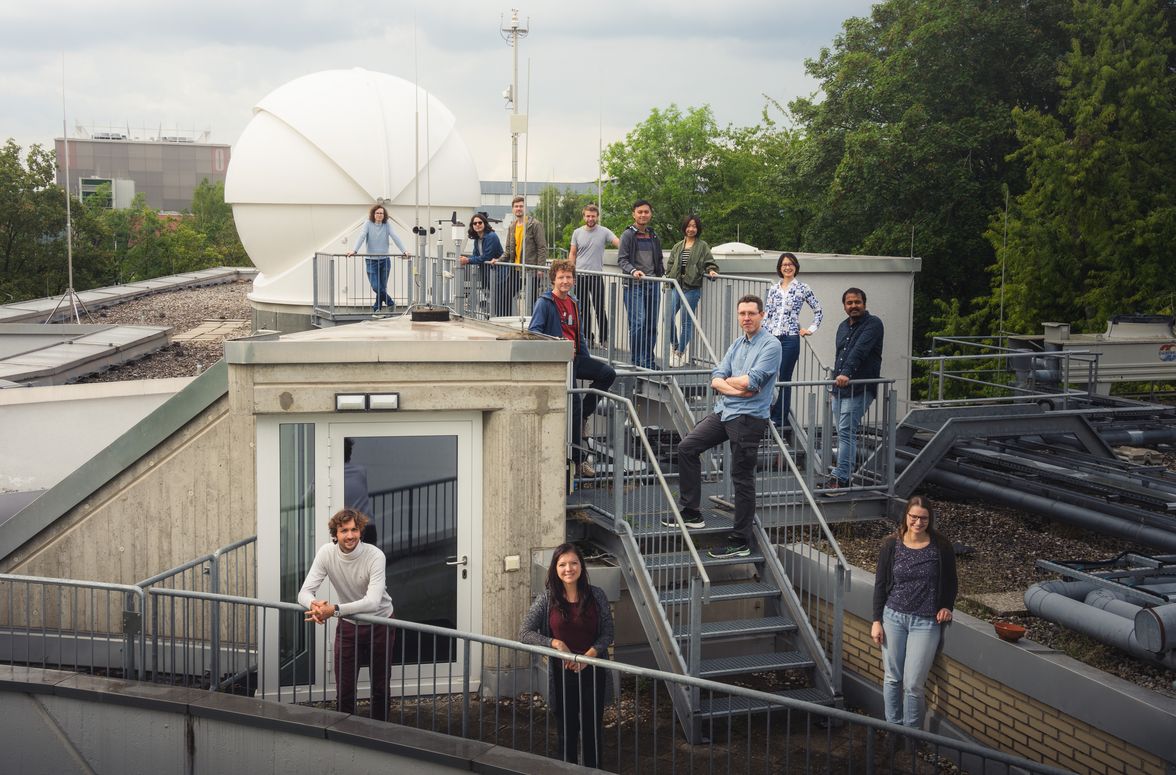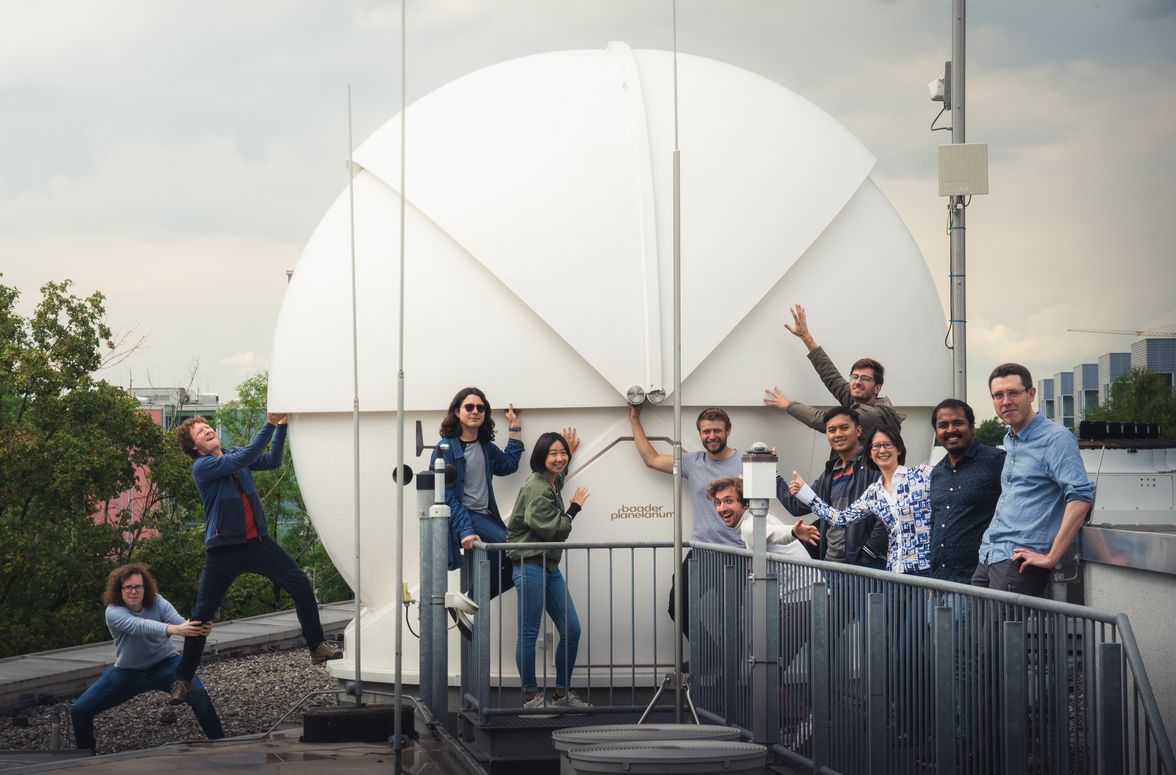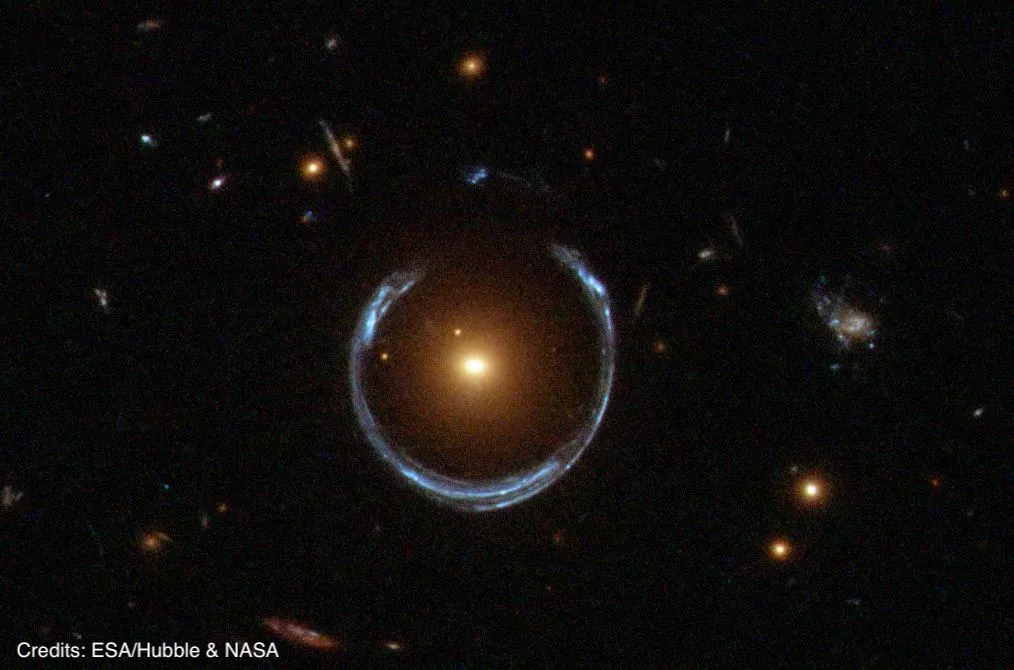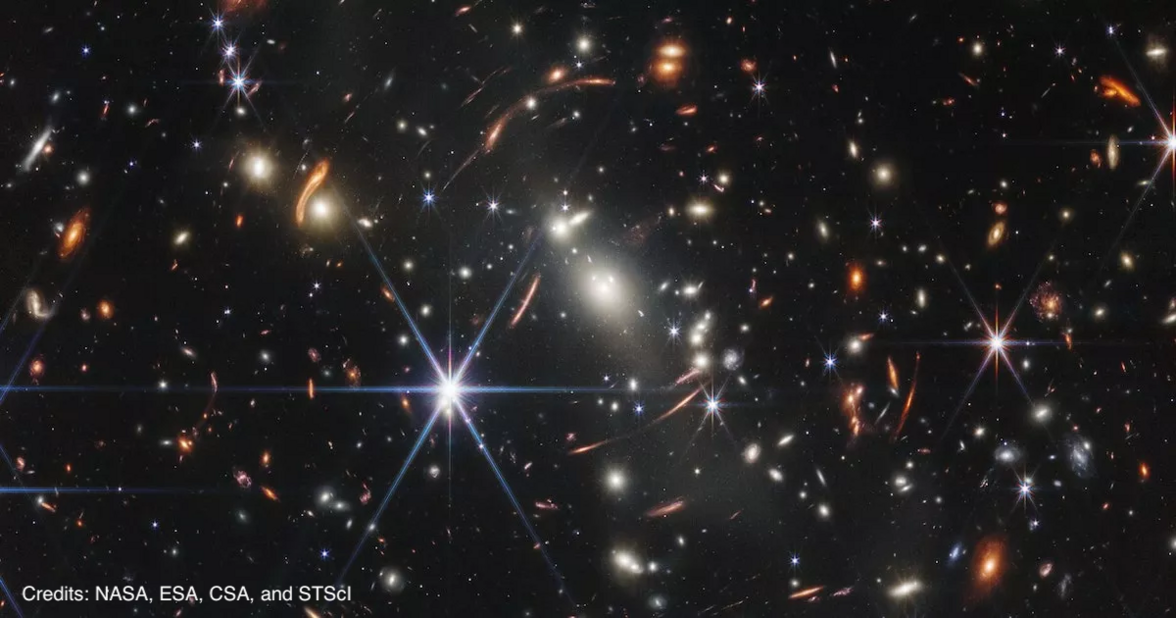Observational Cosmology
Welcome to the webpage of the Observational Cosmology research group at the TUM School of Natural Sciences and the Max Planck Institute for Astrophysics! We are fascinated by the dark cosmos, and observe spectacular astrophysical phenomena to probe our Universe. In particular, we use gravitational lensing, the bending of light by gravity, and supernovae, the explosions of stars. Our research areas include
- Gravitational lensing, the deflection of light by mass distributions
- Expansion of the universe, in measuring the present-day expansion rate
- Supermassive black holes at the centres of galaxies, to see how they and their host galaxies grow and co-evolve
- Galaxy clusters, in mapping the mass distribution for cosmology and studying high-redshift galaxies
- Galaxy formation and evolution, particularly the interplay between dark matter and baryonic matter in galaxies
- Supernovae, to see what triggers these dramatic explosions of stars
- Tidal disruptions, where stars are tidally disrupted by supermassive black holes
- Deep learning applications in astrophysical research
Find out more about these topics and our research team in the links above or menu bar.
(Last updated: February 10, 2025)




